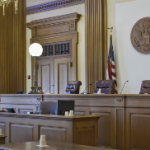Many individuals are protected by landlord and tenant laws in Chicago. It makes sense to enact laws to ensure residents have nice places to live. Of course, laws were passed due to unscrupulous landlords who tried to wrongfully evict residents and keep security deposits. Now, residents have tools to fight these actions.
The Regulations
The Chicago Residential Landlord Tenant Ordinance or RLTO protects many who live in apartments. However, the tenant must have an oral or written lease. Further, those who live in so-called residential hotels for at least 32 days are covered. Owner-occupied buildings must have more than six rental units to fall under the rules.
RLTO Puts Teeth into the Law
Landlords have not always been quick to make necessary repairs. Indeed, RLTO gives the tenant a remedy. Tenants may request in writing that repairs be made within 14 days. If the repairs are not made, the tenant may withhold money from the rent. This money reflects the reduced value of the apartment. On the other hand, the tenant can break the lease if the repairs are not made.
RLTO demands that landlords pay utility bills in a timely manner. If not, tenants may hire an attorney who handles landlord and tenant laws in Chicago to file suit. The tenant is entitled to damages for the reduced value of the apartment. Further, one does not have to wait for the Red Cross in the event of a fire. Tenants can move out right away or pay reduced rent if it’s safe to stay.
Security Deposits
The return of security deposits has always been a contentious area. Tenants pay security deposits up-front for any future damage done to the apartment. Likewise, the landlord is supposed to keep this money in an interest-bearing account. Indeed, tenants are entitled to receive interest on the deposit annually. Further, tenants should have the deposit refunded no later than 45 days after they vacate the premises.
Landlords are allowed to keep part of the deposit to pay for verified damages. However, they can be taken to court for failing to show receipts and keeping too much money. A lawyer will ask for damages and attorney fees in court. For more information, visit Starr, Bejgiert, Zink & Rowells. Like us on Facebook.




